The Verdict: "The Last of Us" is good, but is it really THAT good?
While January and February struggle at the box office, two prestige TV series have been picking up the slack.
Welcome to The Verdict, a weekly column in which I recap all the film, television, and entertainment news I’ve been consuming by grouping them into one of three boxes: Overrated, Underrated, and Perfectly Rated.
The first two months of the year are typically the least exciting months for moviegoers, a fact that has remained largely true for 2023. A couple of notable exceptions aside (Plane was apparently a pretty fun action romp with Mr. Gerard Butler, and M3GAN was a surprisingly good horror-satire), these last couple months have for the most part adhered to first-of-the-year boredom, with the Avatar sequel still topping the box offices next to a slew of Academy Award nominees.
The same is not true of television. One of the interesting quirks of our present era of Peak TV is that an HBO show can feel like more of a blockbuster experience than whatever is playing in movie theaters. Whether it be Yellowstone continuing its rampage across every boomer household in America, or the new season of Succession feeling like a seismic event, television is at present a cultural force that rivals even some of the biggest silver screen blockbusters. Case in point: The Last of Us, Craig Mazin and Neil Druckmann’s adaptation the 2013 PlayStation videogame, has had more people taking to Twitter than Lydia Tár after a leaked Juilliard video.
The headlines are nonstop. “One of the finest TV shows you will see this year” reads a review from The Guardian. “An Astounding Survival Story — and a Major Moment in TV” reads another by Ben Travers at IndieWire. “As video game adaptations go, The Last of Us is in a league of its own” wrote Lorraine Ali of the Los Angeles Times. And it isn’t just critics: The Last of Us has been taking audiences by storm, with a recent viewership jump from to 6.4 million. Twitter barnstorming has become incessant, causing more “THIS IS THE BEST THING I’VE EVER SEEN!!!” freakouts than any show of the last few years. As far as HBO prestige TV is concerned, The Last of Us is about as big a hit they could hope for.
But here’s the thing.
The Last of Us is Overrated
Which is not to say that this is a bad show! In fact, The Last of Us is a very good show. Perhaps it will even be a great one, as we will surely find out in the coming weeks. But after last Sunday’s third episode, which has premiered to more acclaim than any episode in recent memory, people are going absolutely crazy, and I really think that people need to calm down. This episode—and this series—is not quite the masterpiece it’s chalked up to be.
[SPOILER WARNING: The following text assumes that you have seen the first three episodes of The Last of Us, and will describe key plot details from thsoe episodes.]
Let’s recap. Through its first two episodes, The Last of Us has stuck to its videogame source material with impressive consistency. The show begins in 2003, where a zombiefying fungal pandemic overtakes the globe, resulting in the majority of human beings turning into undead creatures with an appetite for human flesh. The setup is the same zombie story you’ve seen a million times before, but what made the 2013 videogame so special—and indeed Mazin and Druckmann’s show—is its central relationship between protagonists Joel and Ellie.
Fans of The Last of Us have long known the relationship between Joel and Ellie to be among the most powerful and captivating character relationships not just in videogames, but in any medium, period. In both the game and the TV show, we first meet Joel—a brusque, hardened Army veteran played by Pedro Pascal—at the beginning of the undead apocalypse, where he lives with his daughter Sarah (Nico Parker) and brother Tommy (Gabriel Luna). The undead awakening happens in an instant, catching everyone off guard and causing Sarah’s tragic death, rendered in a bravura setpiece that not only recpliates the game’s fantastic car chase opener, but also the tears that it manually extracts out of your unready eyes.
The show then cuts to twenty years later, where Joel lives in Boston (entirely unchanged from 2003: a Quarantine Zone police state, probably still filled with rabid Patriots fans) where Joel is smuggling drugs and other supplies with his partner-in-crime Tess (Anna Torv). In an attempt to escape the Boston QZ and find Tommy, Joel and Tess become involved with an insurgency group known as The Fireflies, who promise the two of them a car for their journey West under the condition that they take Ellie (Bella Ramsey) with them. As it turns out, Ellie might just be the cure to all this fungal nonsense—she has survived multiple weeks with a zombie bite on her arm. Thus sets off Joel, Ellie, and Tess set off on a journey to find Joel’s brother, and perhaps even a cure for mushroom-headed cordyceps.
Adapting The Last of Us for television was always going to be a gargantuan task—videogame fanboys are universally hard to please. Thankfully, HBO has provided Mazin and Druckmann with appropriately gargantuan budgets (somewhere in the $150 million range), granting them A-list character actors, VFX-infused production design, and, most importantly, the liberty to divulge from the game’s base narrative.
How to Overhype an Episode of TV
After two episodes spent setting up Joel and Ellie’s journey into an unknown wasteland, episode three (called “Long, Long Time”) sends itself into standalone exceptionalism. With Tess dead, Joel and Ellie have gone in search of Bill and Frank, Joel and Tess’ old trading partners. The episoe spends about 10 minutes in Joel and Ellie’s company before completely shifting gears, cutting back to the beginning of the fungal invasion and telling the story of a new character: Bill, played by Nick Offerman in a brilliant bit of casting, is a recluse and doomsday prepper (though he prefers the term “survivalist”). Bill begins his time in the zombie apocalypse by converting his hometown hamlet of Lincoln, MA into a post-apocalyptic paradise, complete with running hot water, high-end dining (that roasted rabbit + beaujolais looks good), and, best of all, zombie-killing boobie traps protecting him from the outside world.
But after three years of isolation, the world comes knocking. Frank (Murray Bartlett, very good) is a kind, if perhaps unskilled man from the Baltimore Quarantine Zone who shows up inside one of Bill’s traps, unable to escape. Hungry after two days of travel, he begs Bill for a single meal. Eventually Bill finds it in himself to extend an olive branch—one that includes the aforementioned hot water roasted rabbit. A well-prepared dinner leads to a piano ballad, which in turn leads to the two of them sharing a bed together. This is perhaps Prestige TV’s first pastoral romance set amid the zombie apocalypse.
“Long, Long Time,” which is written by Mazin and directed by Peter Hoar, is a wonderful departure episode from the series’ norm, recounting Bill and Frank’s two-decade romance caught between isolated safety and the potential for life beyond it. It is the first—and likely only—time that the show has fully separated from Joel and Ellie. It is also a noticeable departure from the original videogame narrative, where Bill served as an important companion character who helps Joel and Ellie in their journey West. In the show, Bill and Frank’s relationship—a gay romance that the game only hinted at—ends before Joel and Ellie ever catch up with them. By the episode’s end, Bill and Frank have lived long, happy lives, and choose to collectively end their lives in romantic suicide.
“Long, Long Time” has been out for a little less than a week, and everyone is falling down at their knees in adoration. People love, and I mean f*cking love this episode. Barnstorming Twitter headlines are calling it “one of the best episodes of television I’ve ever seen,” “a Masterful Love Story for the Ages,” and far, far more that repeat the same thing over and over again.
And I am here to tell everyone to chill out.
Even if “Long, Long Time” is a great episode of television—and, yeah, it admittedly is—jumping to the conclusion that it is among the greatest episodes of all time is quite the stretch. Yes, Offerman and Bartlett are great in their one-off roles, with Offerman in particular adding sophisticated shades to his preestablished repertoire as the woodsman-survivalist actor with his own furniture store. Yes, Mazin is showing us all how to truly convert videogames into television by rewriting the more “gamey” sections into innovative departure episodes. Innovation does not necessarily equate to greatness, however, and I think this is where people are getting themselves caught.
The Last of Us already had legions of fans eagerly anticipating the return of Joel, Ellie, and all of their favorite mushroom-headed zombies. I know this because I am one of them. I’ll make the argument that (Metal Gear Solid 2 notwithstanding) The Last of Us is the single greatest videogame narrative ever made, and worthy of consideration as among the greatest works of fiction in the 21st century. I am far from the only person to believe this, and I think this goes some way in explaining why “Long, Long Time” has been received so rapturously. It is a great episode in its own right, one that also adds emotional depth to a world that people were already in love with. If this weren’t the case, would the episode be receiving this same critical appraisal?
Maybe. Many TV critics who have not played the game are in love with the episode too, praising all the same things that have the Twitter fans up in arms. (Twitter fans are still another breed, amalgamating all their hype and turning it into public consensus.)
Still, I can’t help but find issues with “Long, Long Time” that few people seem to be talking about. While I enjoyed the early goings of Bill and Frank’s dystopic meet-cute, it soon settled into a series of Romantic Moments with a tendency to lean into The Notebook levels of cheesiness. Bill and Frank plant strawberries to symbolize the permanence of their relationship amid a beautiful soft-lit backdrop. Bill defends Frank from nighttime raiders by bravely (read: stupidly) standing in the middle of the street, without cover, taking potshots at his aggressors. Old-age makeup Bill and Frank spend their last day on earth together getting married while Max Richter’s “On the Nature of Daylight” plays luminously in the background. (When the Richter track started playing, I groaned—has Mazin not seen Arrival?)
These are relatively minor complaints for an otherwise great episode, but I think they’re worth highlighting. “Long, Long Time” is emotional and captivating, but it is not a masterpiece. I understand the impulse for praise. People are very into The Last of Us right now, and for good reason. Us ludophiles has long awaited the videogame adaptation that would prove to non-gamer audiences that these stories are worth telling. With Mazin and Druckmann’s impressive work, we now have someone to thank for pushing the envelope. But in three to five years, I don’t think that people will look back to “Long, Long Time” in the way that it’s currently being seen. It’s a potent episode with some magnificent performances, one that moreover shows us how videogame narratives can, with the right budget and talent, be translated into a different medium. But an era-defining masterpiece? I’m not so sure.
Anyway, that was a long essay of an Overrated argument. How about something more positive?
Underrated: Poker Face
While everyone was hyping up The Last of Us, another big-deal TV show seems to have gone by the wayside. Poker Face, created by Knives Out and The Last Jedi writer-director Rian Johnson, is an exceptionally entertaining new series on Peacock that stands against everything our Prestige TV lizard brains are told to believe. A case-of-the-week series in the “howcatchem” mold of Dragnet and Columbo, Poker Face stars the inimitable Natasha Lyonne as Charlie Cale, a cocktail waitress with an instinct for lies. If she hears a lie, she immediately detects it, typically causing her to spout out “Bullshit!” in all of Lyonne’s New York smoker-voiced glory. It’s a fantastic role for a fantastic actor giving off a degree of eclectic charisma that could put her on track for a Peter Falk level of iconic.
There is no serialization in Poker Face, standing against all that Netflix and HBO purport to be good and true in the world. Each episode stands on its own, set in a new town with a new murder that Charlie has to solve. This means that you can skip a week or two before returning to the show, incentivizing the kind of week-to-week viewing that is more and more uncommon in today’s TV landscape.
I’ve seen three of the show’s five released episodes, and I just love it. The throwback format feels perfectly comforting at a time when television shows ask more and more commitment from their audiences. The writing is crisp, the direction precise, the acting riotous and exciting. Speaking of actors: Poker Face has a wealth of guest stars, including the likes of Adrien Brody, Dascha Polanco, Lil Rel Howery, and Hong Chau, each of whom gets the opportunity to chew into wonderfully juicy roles.
I love this show, and I think you can too, especially if you are afflicted by the following conditions. Do you:
Find yourself annoyed by hyper-serialized TV that asks a twenty-hour commitment of your time?
Dislike zombie apocalypses?
Enjoy dumb fun TV in which a group of truckers sing “Fox on the Run” by Sweet?
If any of these are true, then Poker Face may very well the show for you!
Agree or disagree with these takes? Have any underrated/overrated takes of your own? Let me know in the comments!
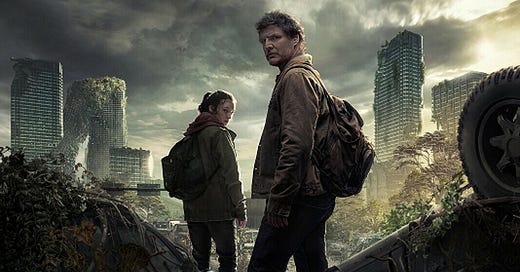



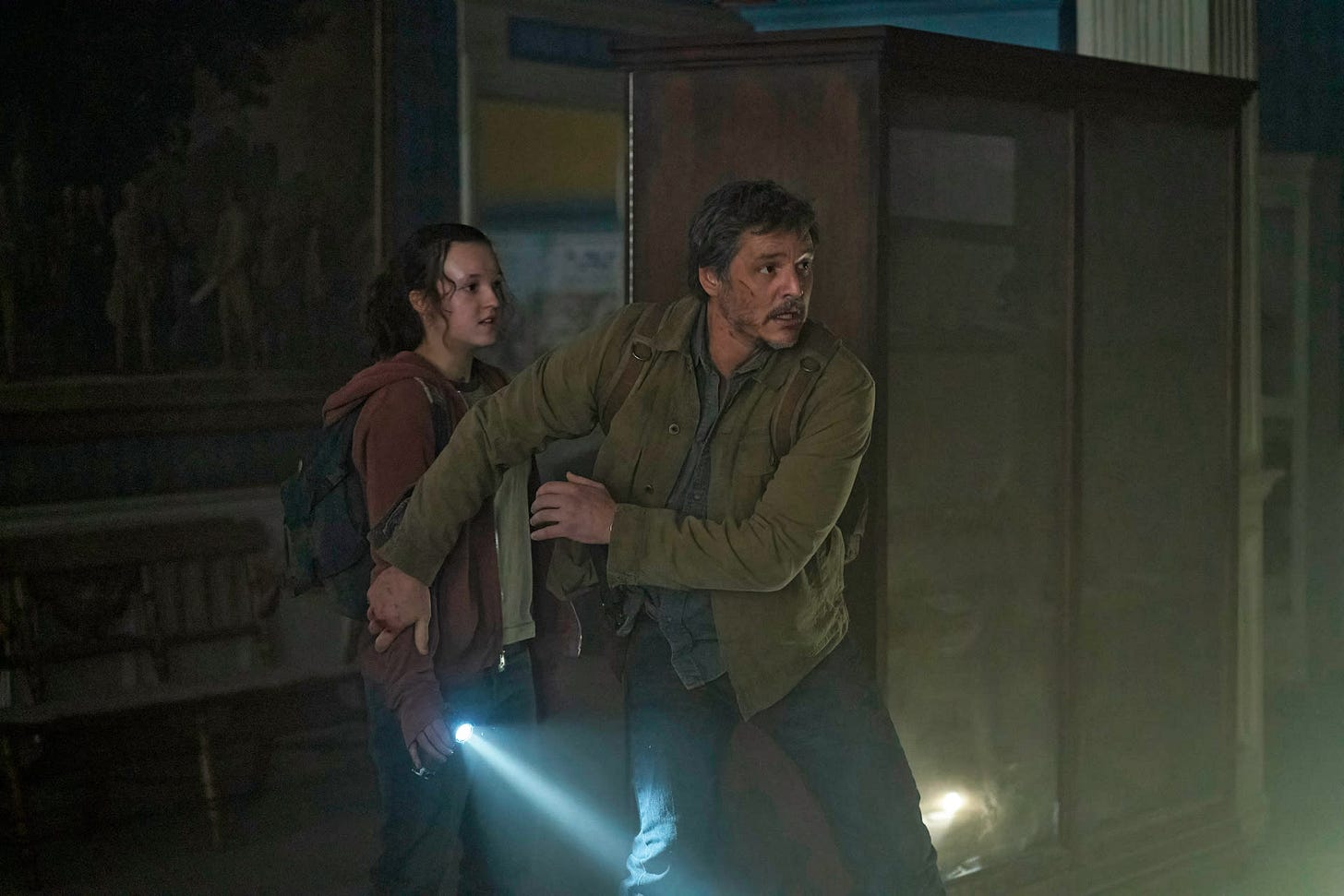
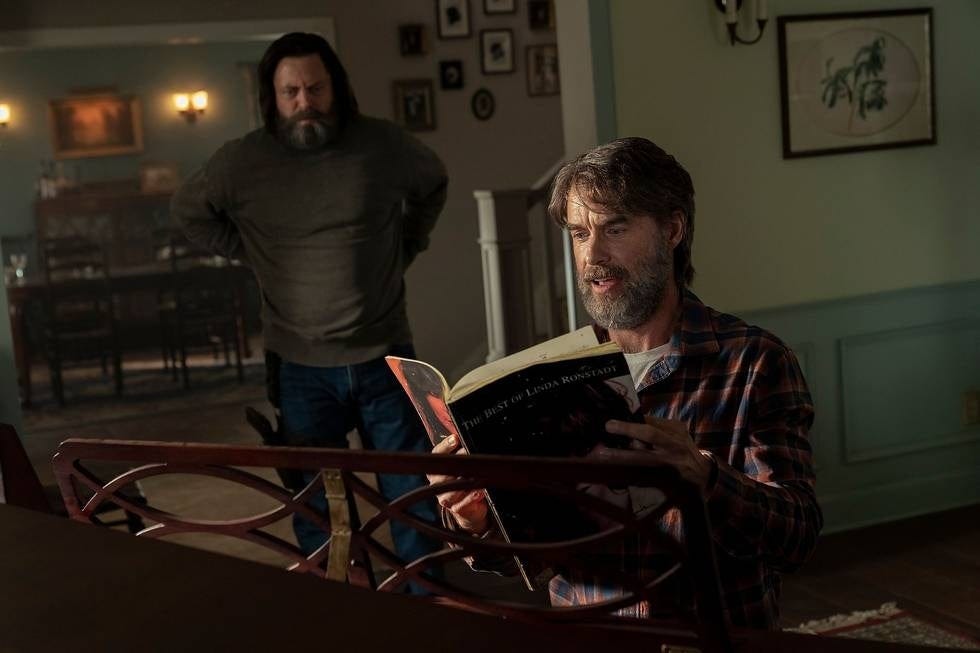
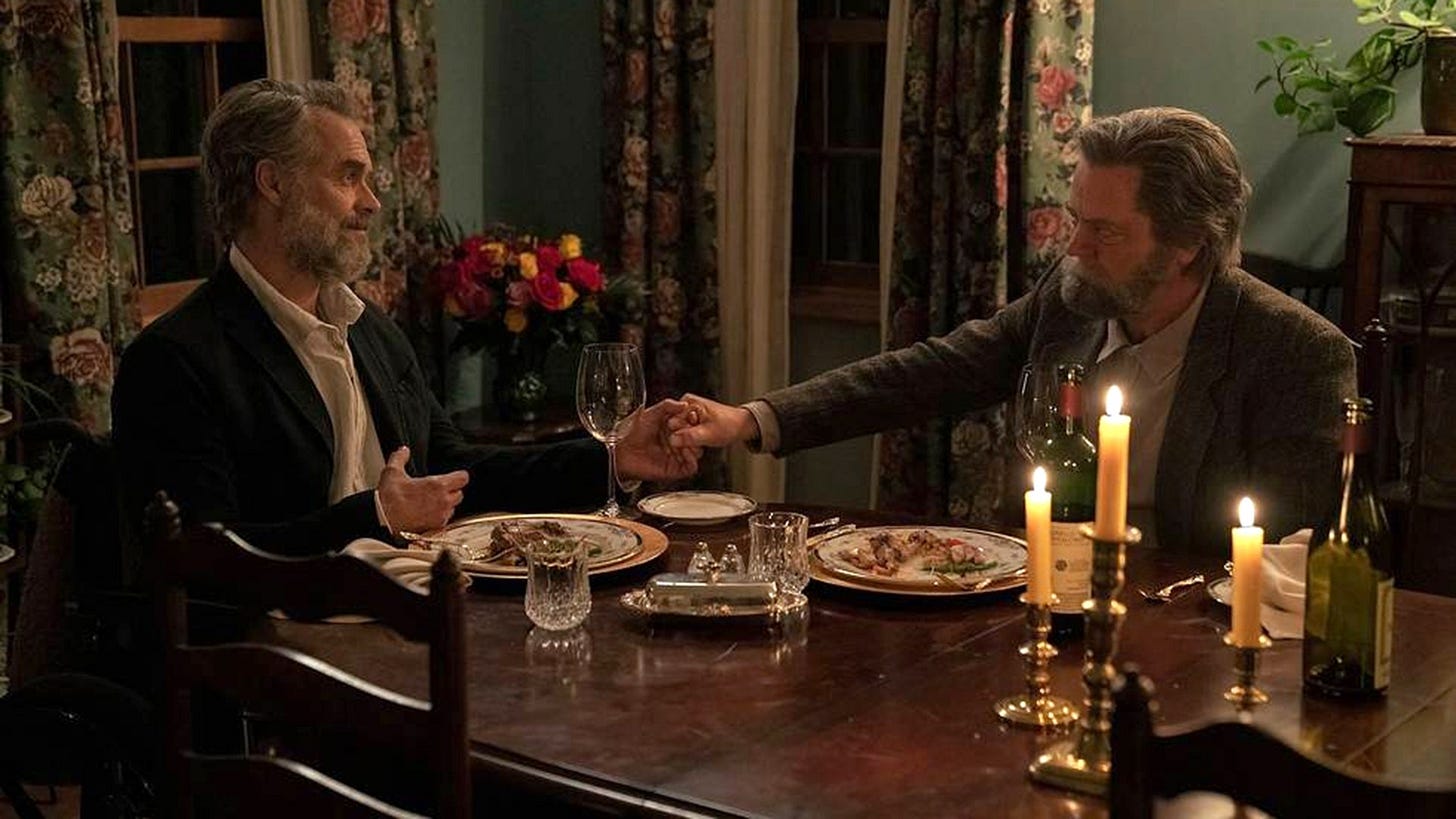
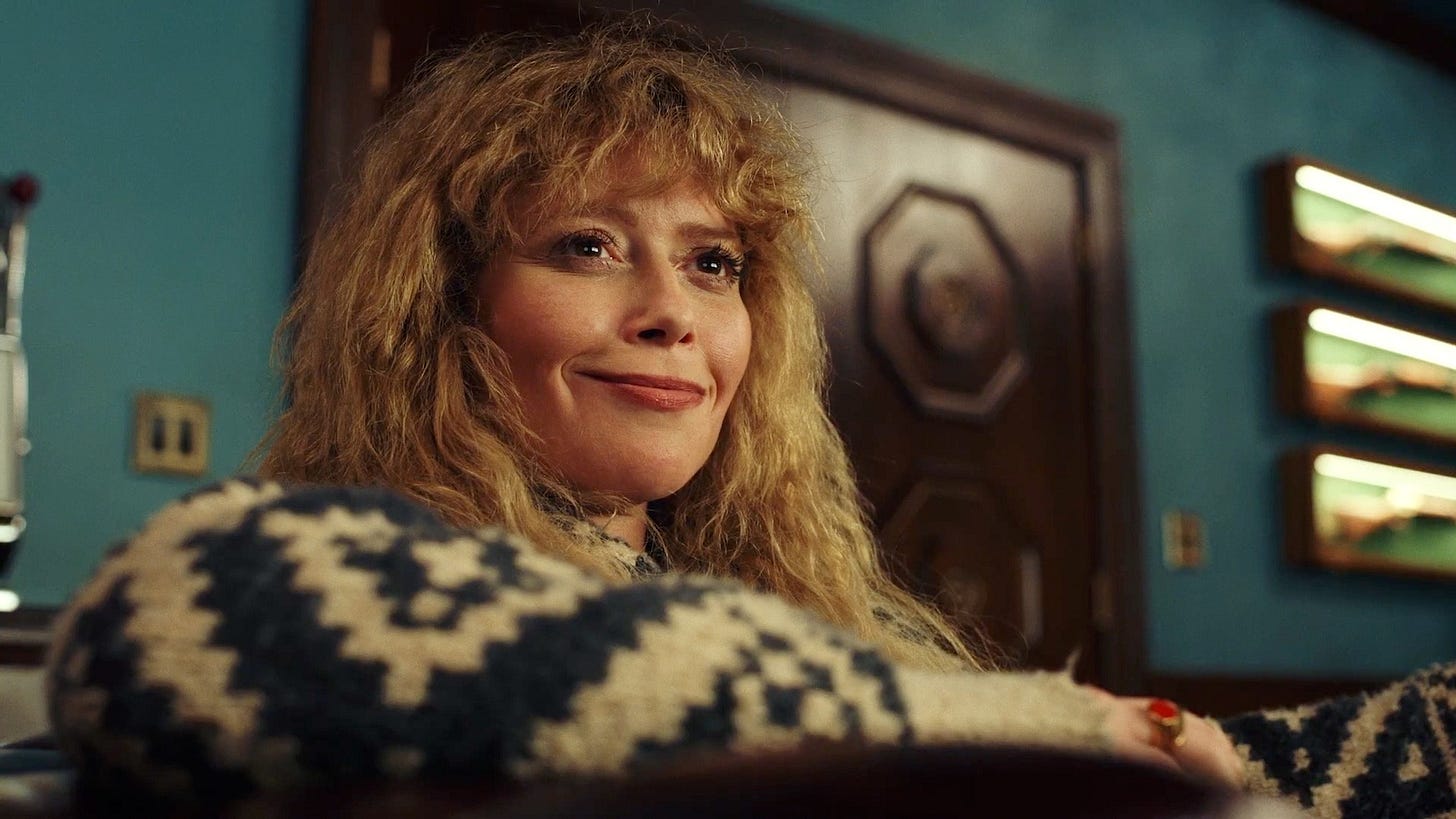
Thanks for confirming my priors. I heven’t seen it yet but I’ve seen numerous people claim episode 3 is among the best TV episodes they’ve ever seen. I just don’t see how such an early episode could be in that category (and this is coming from a Succession hospital episode truther)...